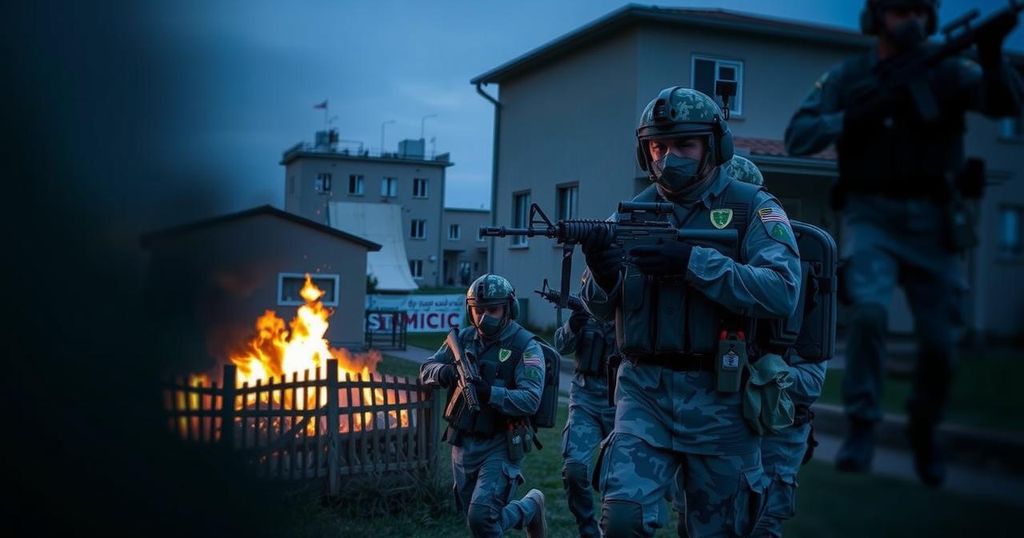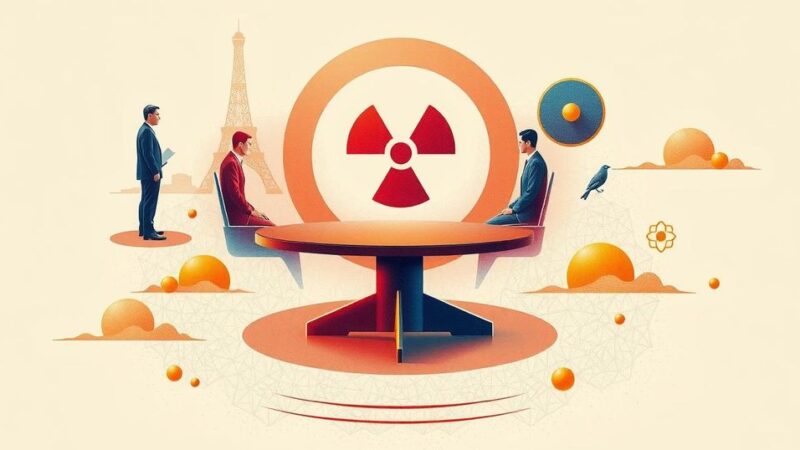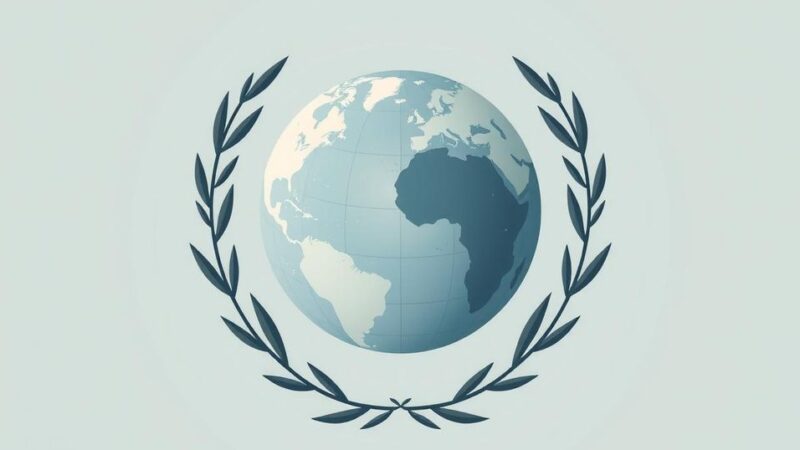Israeli military actions in Gaza have escalated, resulting in multiple casualties. Reports indicate a blockade affecting 100,000 individuals. In Lebanon, two paramedics were killed during an Israeli raid. Iran’s President suggested the possibility of altered responses if Israel accepts a ceasefire. Additionally, Turkey and other nations submitted a letter to the UN calling for a halt to arms shipments to Israel.
Israeli military operations have intensified in the Gaza Strip, resulting in the deaths of two Palestinians in Gaza City and four in Jabalia, following a previous day that claimed 35 lives. The Palestinian Civil Defence has urged for international assistance, accusing Israeli forces of obstructing rescue initiatives in northern Gaza, where around 100,000 individuals are reportedly stranded without essential supplies. Additionally, in southern Lebanon, Israeli forces executed a raid in Bazouriyeh, killing two paramedics, while Hezbollah announced missile attacks directed at an Israeli military installation in Haifa. Furthermore, Israel’s military reported conducting a ground raid that led to the apprehension of a Syrian accused of espionage for Iran, which follows a similar abduction of a Lebanese citizen. In a statement concerning the ongoing conflict, Iran’s President remarked that a ceasefire from Israel could influence Iran’s response to the situation. Concurrently, Turkey communicated to the United Nations, alongside the signatures of 52 nations, advocating for a suspension of arms deliveries to Israel, including key nations such as Saudi Arabia, Brazil, and Russia. This series of developments highlights the escalating violence and calls for diplomatic resolutions amid the crisis in the region.
The recent surge of violence between Israeli forces and Palestinian groups has escalated dramatically, particularly following Israel’s military actions aimed at deterring attacks from militant factions in Gaza. International responses have been crucial, with various governments and organizations urging for humanitarian access and the protection of civilians amidst the ongoing military conflicts. The situation is compounded by actions taken in neighboring Lebanon and the implications of Iranian influence in the region, which adds complexity to the conflicts involving multiple state and non-state actors.
The ongoing military confrontations signify a troubling escalation in violence, affecting civilians severely in both Gaza and Lebanon. The appeal for humanitarian intervention underscores the urgent need for international diplomatic efforts to address the conflict. As global entities voice their concerns, the remarks from regional leaders indicate potential pathways for dialogue, though the situation remains precarious. The international community’s engagement will be critical in advocating for peace and restoring stability in the region.
Original Source: www.aljazeera.com






